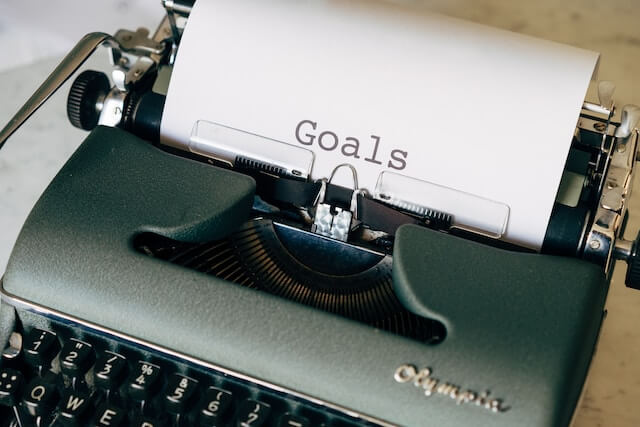Christmas can feel like a difficult time for so many people for different reasons. I remember my mum always doing way too much prep for Christmas. Sometimes she would go as far as repainting rooms in the house. For some, a slightly overly house-proud mum is the least of their worries. Christmas can be a time where money issues are brought to the forefront, where difficult decisions need to be made around where Christmas is spent, being around particular family members that you wouldn’t see if it wasn’t for Christmas and then there’s alcohol. Which, let’s be honest, can either add to the merriment or be the very thing that ruins Christmas.
Even if none of the above is an issue in your household, Christmas with an eating disorder can be a very challenging time. Sometimes due to the internal pressure you put yourself under or the pressure your family puts you under to, well, eat.
Whatsmore, December is when talk about diets and bodies really ramps up. You can barely open an internet explorer window before yet another diet tip or detox is thrown at you. But more on diet culture next month.
The main thing to focus on when it comes to surviving Christmas with an eating disorder is just that…Surviving. It makes up a tiny fraction of our whole year. Moreover, the food makes up even less. Here are a few things you can add to your repertoire of healthy coping mechanisms to help you pass the finish line.
Honour where you are in your recovery
Recovery is not easy. One day you feel like you’re winning and other days you feel as though you have taken 3 steps backwards. This is because recovery is not a linear process. It has ups and downs and sometimes what feels like round and rounds. But you’re here and you’re reading this and so you haven’t given up. I say all that to say, honour where you are in your recovery. It’s easy to fall into the trap of putting unrealistic expectations on yourself. It’s also tempting to fall into the trap of giving the appearance that you’re further along in your recovery than you really are. Doing this is not only downplaying how hard recovery is, but it is also quite dismissive of the work you have done in your recovery thus far.
There’s nothing wrong with wanting to say yes to things that you wouldn’t normally say yes to. Equally, you are well within your rights to say no to anything that feels too far beyond where you’re at.
Have a Plan
It’s easier to prepare for Christmas when you know your what, where and when. Get a rough idea of what’s on the menu so that you can decide what you’re going to do food-wise. It’s a bit of an ask to get an exact time that your meal will be served, but knowing what time of the day would be helpful. If you know a Christmas meal is a lunch you will need to plan what you will do for dinner and vice versa.
Beware of Event Restriction
I got this term from Tabitha Farrar’s book Rehabilitate, Rewire, Recover. Event Restriction is the restriction that takes place before and after any event. That could be lunch with a friend, a date, Christmas, a holiday…You get the gist. It’s a form of compensation that is full of lies. You believe that you’re “saving calories” or making sure you’ll be hungry for a particular meal. In reality, you are increasing your likelihood to experience increased food thoughts, throw your blood sugars out of whack and increase the urge to binge. The irony is that you end up enjoying the meal less because restriction increases your food anxiety.
Stick to a structured eating pattern (at least three meals and three snacks).
Wear Something Comfortable
Comfortable clothes are a must, well, always. But particularly when you’re in recovery from an eating disorder. Digestive issues can mean bloating and poor body image can feel exacerbated by clothes feeling too tight. It is normal for our stomachs to look and feel different after eating and as we progress through the day. For some this can be triggering in itself, wearing clothes that allow for these fluctuations can make this discomfort easier to sit with.
Use Grounding Techniques and Objects
Grounding is a fantastic way to bring awareness to the body and to help you self-regulate. It’s an important recovery tool that is most effective when used regularly. Objects that you find grounding can be a piece of jewellery, a stone, a picture of a pet or even a quote that gives you hope. Below is one of many grounding videos by Emma McAdam on her YouTube channel Therapy in a Nutshell.
Set Healthy Boundaries
Comments around food, bodies, diets, idle gossip anything that you don’t feel comfortable with, you are welcome to walk away from or shut down. I read a post by Fiona Sutherland at Mindful Dietician that helped think of diet talk from another perspective.
“When people start talking about weight loss, their latest diet or trash-talking their body, they are likely anxious and/or seeking connection. This does not make it okay btw, but remembering this might offer context and compassion so you are more free to do your thing.” – Fiona Sutherland (The Mindful Dietician)
Here are some helpful phrases I found seen over the years
“I’m happy with what’s on my plate at the moment. This looks so good!”
“I’ll see how I get on with what I have and will have a bit more if I’m still hungry.”
“Thanks so much. This is good for now.”
“I guess everyone has their preferences.”
“I’d much rather talk about anything else other than your diet.”
“I don’t talk about diets or weight loss.”
“Part of my recovery is listening to what I feel my body needs.”
“This is a difficult subject for me at the moment. Could we talk about something else?”
During the meal
Be aware of ED behaviours as they arise. If you can, arrange to sit next to someone who understands your eating disorder or is at least a good food role model. If you catch yourself staring at other people’s plates, comparing, getting competitive – come back to your grounding object, the sensation of your feet on the floor and bring your awareness and focus to your meal.
Engage in a positive distraction after eating
After eating, do something relaxing that will take your mind away from food. Perhaps join in with board games, watch a film, call a friend, change into your comfy house clothes (if you’re not already in them).
Reach out for help if you’re struggling
By reaching out for help you are challenging your eating disorder. Reaching out for help is saying my eating disorder is not a form of communication, when I’m struggling I can use my words. Christmas Support Lines:
-
Beat: https://www.beateatingdisorders.org.uk/support-services
-
Samaritans: https://www.samaritans.org/how-we-can-help/contact-samaritan/
-
CALM: https://www.thecalmzone.net/help/get-help/
-
If you need urgent assistance call 111 or 999 if it’s an emergency.
Keep yourself safe
Over and above everything else, keep yourself safe. If at any point to feel overwhelmed, you are free to excuse yourself and take a moment to yourself. I found this beautiful bullet journal template that will help you write up a crisis plan if you don’t already have one.
Creating a Crisis Plan: A Free Printable Worksheet for Safety Planning




